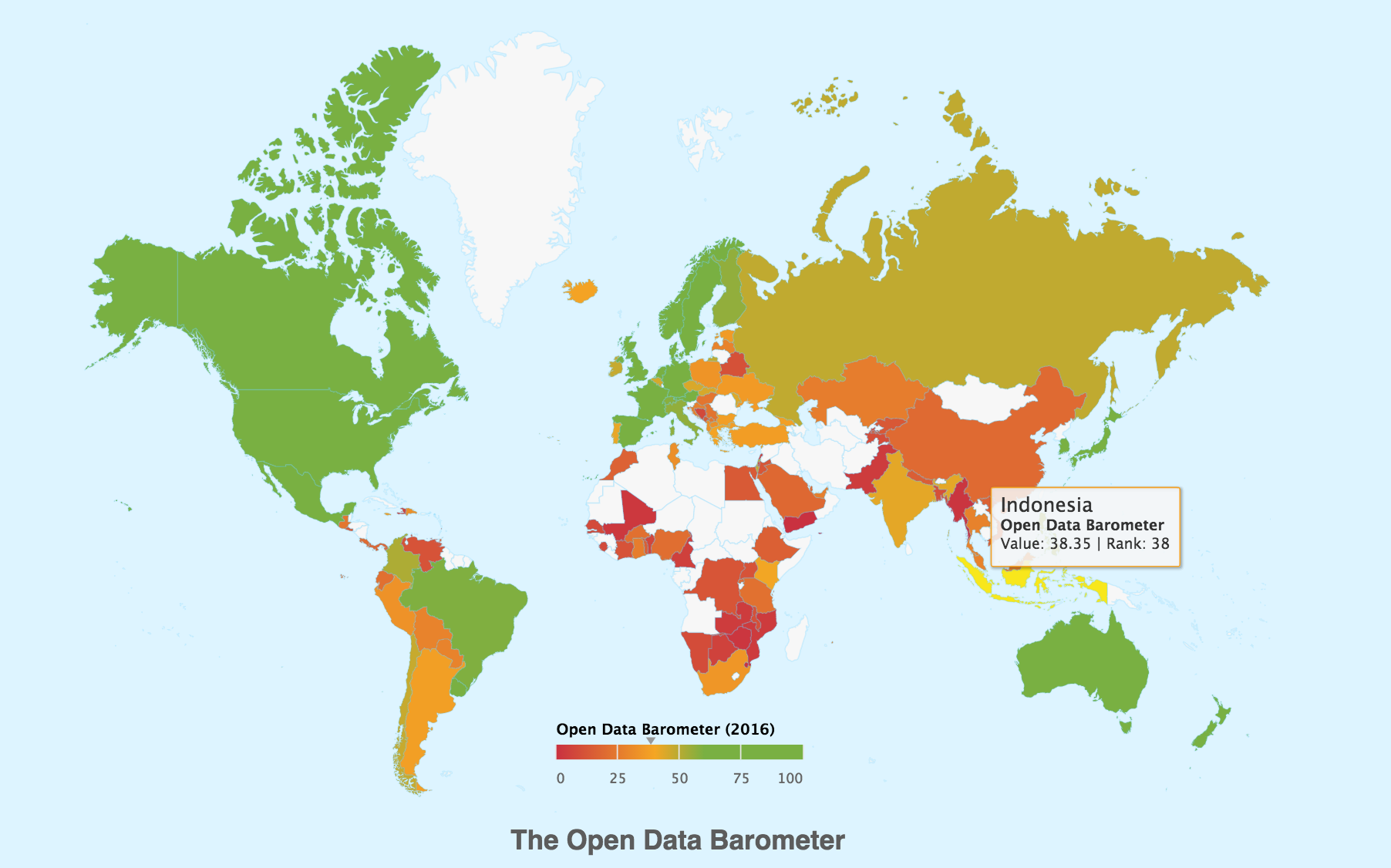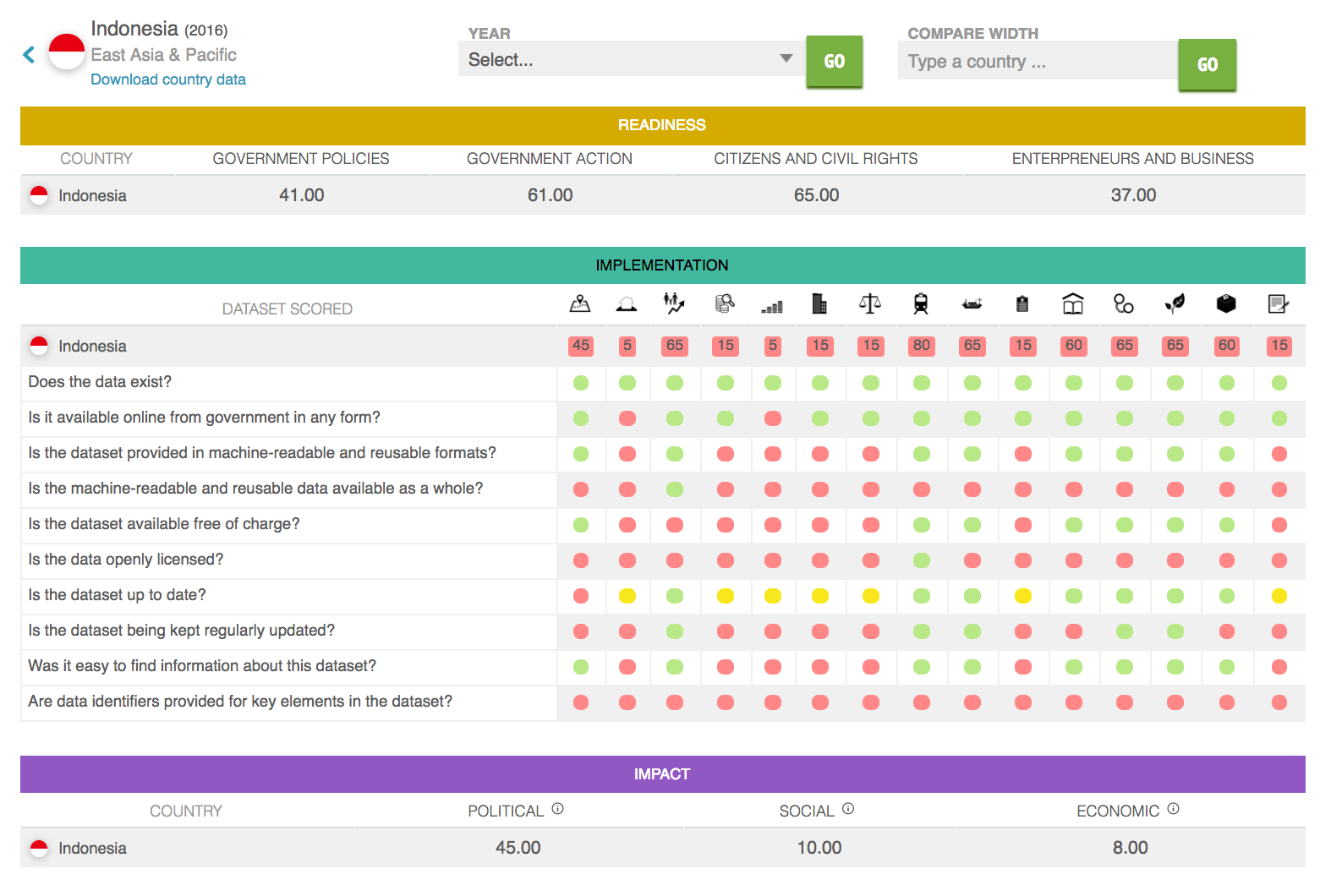
How is Indonesia doing on open data? The country ranked 38 globally in the latest edition of our Open Data Barometer — which measures the prevalence and impact of open data around the world. That’s an improvement of two spaces since our last Barometer, driven in part by successful government collaboration with civil society to foster innovation. However, the speed of progress in the implementation and impact of open data remains disappointing.

A closer look at Indonesia’s standing
To explore the Barometer’s findings and to identify next steps for open data in Indonesia, we hosted a roundtable discussion in June with civil society and government officials, including key representatives from the Open Government Indonesia initiative and the Ministry of Bureaucracy Reform. Our Regional Research Manager, Michael Cañares and Senior Researcher, Glenn Maail, presented developments and trends particular to Southeast Asia and Indonesia and facilitated a Q&A with attendees.
Here are some key takeaways from the discussion:
- Institutionalising and standardising data management practices within government are needed to pave the way for effective open data efforts.
We discussed the Indonesian government’s efforts to improve its internal data management as a key topic. The country currently struggles with cluttered, chaotic, and often mismatched data from differing governmental bodies. This led to the realisation of the pressing need for standardised and consistent data, and better data management is seen as necessary step towards publishing high quality government data. - Involving the private sector in adopting and supporting open data practices is key.
The private sector’s role, both in supplying and using open data – was another important topic. There were discussions about how the government can incentivise the private sector to share more data, as well as how the private sector itself can benefit from access to more open data. Should government encourage and accept data “donations” from private companies to improve public services? What are the implications of doing so? - Increasing open data demand and use by civil society directly impacts the success of nationwide open data efforts.
The role of data intermediaries – such as researchers, activists and civil society organisations – in the demand for and use of open government data for accountability and social impact was brought up repeatedly. Some argued that in order to foster demand for open data, we need a strategy to make open data more relatable to the general public. Activities that the government can undertake to increase open data awareness, uptake and use range from publishing more quality data that follows a national standard, adopting better data visualisation methods to make them easier to understand for potential users, and having thematic, strategic and timely releases of government data.
Commitments leading to action
The officials present showed willingness to take action to overcome identified shortcomings, while representatives from civil society shared several ideas to increase open data uptake and use. This two-sided acceptance and participatory exchange revealed the commitment of both parties to strengthen open data practices in Indonesia.
To support this, one of the most important next steps is to standardise data practices across government ministries and agencies. The shift in policy focus towards prioritising data management practices before proactively disclosing datasets can be seen as not only logical, but perhaps the crucial first step. In addition to this, involving the private sector, increasing more civil society participation and engaging citizens in more open data-related affairs, and adopting the Open Data Charter becomes both a goal and means to ensure successful and continued open data practice, rather than a difficult challenge for the Indonesian government to right-away tackle.
Access the Open Data Barometer and data explorer online at http://opendatabarometer.org/
Join the conversation on Twitter using the hashtag #ODBarometer and follow us at @ODLabJkt.
If you liked this piece, you can also learn more about what we do by visiting our projects, find out what we’re up to by following our blog, and understand how we approach challenges by exploring our resources section.
Leave a Reply